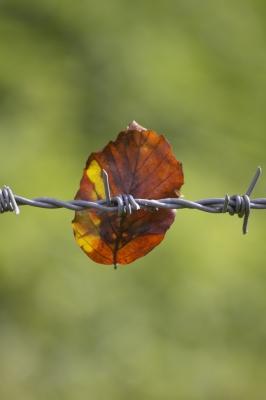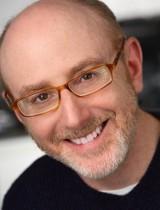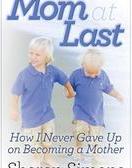In 2005 David and I went to see the Rolling Stones at Madison Square Garden. It was our way of celebrating our 50th birthdays, which came three weeks apart. David had been my best friend in high school. We only see each other once a year now. We get together each year to celebrate the ridiculousness of how old we’re getting and how long we’ve known each other. Soon we will have been friends for 40 years.

Though it’s always wonderful getting together, this time was unique. It wasn’t only the milestone birthday. The Stones meant something special to us. I was indifferent to the band until David dragged me to see them at the same venue of Madison Square Garden in 1972, when we were sixteen. Going to concerts was our reason for living at that time in our lives. Heaven came by getting as close to the stage as we could.
The $4.50 seats we bought placed us about half-way up. We knew how to move and get past the guards. We ended up in the 4th row, center, standing on the back of seats for the entire show. No dervish ever had an ecstatic experience to match mine. The image of young, beautiful Mick in his white studded jumpsuit, on his knees, whipping the stage with his belt to the crash of Charlie and Keith during “Midnight Rambler” will be forever cherished as a singular golden memory.
Little was I to know then that within a few years I would be working at one of the premier recording studios in the world, A and R Recording. Before my 19th birthday I would be working with Mick. I got to be alone with him in the studio. He sang Honky Tonk Woman just for me (He was replacing a live vocal for a radio broadcast). He called me Ginger.
Perhaps these were some of the reasons I felt so emotional seeing the Stones again with David 34 years later. But I was surprised by the strength of my feelings. Waiting for the band to come on I began to cry. David appeared alarmed. Having become a shrink, I’ve probably become more touchy-feely than him over the last few years. I told him it was fine. It actually felt good, but I didn’t know what it was all about. Was it mere sentimentality and nostalgia? That didn’t seem to capture it.
What I was unaware of was that just about when Keith played the opening chords to Brown Sugar, the baby boy who my wife and I were planning to adopt was being born in Wichita, Kansas.
The next day we got the call. The boy was born three weeks early. Having adopted before, we moved into action. There are odd differences between adoption and biological birth. You don’t hop in the car and go to the hospital. Instead, you go to the airport. We were in Kansas before the ringing from the previous night’s concert went out of my ears.
Everything seemed to be ok. The boy wasn’t in the NICU, the neonatal intensive care unit, but they wanted to keep him in the hospital for a few days to make sure he was eating enough to gain weight.
We were anxious. One of the great lessons of adoption is learning about the things you can and cannot control. As control freaks, my wife and I would’ve done the optimum 21st century yuppie prenatal program, and made sure that nothing other than organic passed that fetus’s blood barrier. Now we had to surrender to a plan other than our own.
But letting go was hard. Perhaps the oddest thing about adoption is that we could opt out till the very last minute. If we saw something we didn’t like, we could walk away.
We stood at a small hospital bed and looked at this little guy, no bigger than a hedgehog. He had all of his parts, and he did have that glow of someone who has just shed his wings, like all newborns have. You could still hear the heavenly choir in the background. But we squinted our eyes and scrutinized him like you would a used car. What couldn’t we see? What were they covering up with a cosmetic fix that covered some profound, structural flaw?
The clock was ticking. I could see that though my wife attempted to keep a critical eye, she was falling into that narcotic goo of infant motherhood. And soon enough all the powers that be would want us to sign the papers that would make this newborn forever and irretrievably our son. Within a few days it would all be done. There would be no going back. If we decided to go for it.
In those first days we discovered something wonderful. We liked Wichita. Its people were nice. The nurses were all kind, open-minded, and seriously dedicated to doing good work and getting food on their family’s table.
The city was a small grid. It was clean and easy to navigate. One day, with little to do, I took a drive by myself to the edge of town, ten minutes from anywhere in the city. The town ended abruptly. Suddenly I found myself facing a flat prairie that went on for about 1000 miles till you hit the Rocky Mountains. I drove a few miles into Wizard of Oz country and found myself gripped with terror. I was sure that in another few feet I risked falling into the endless void. I turned the car around and whizzed back to civilization. Somehow, this felt like a portent of things to come.
Seeking any guidance, our attorney came in to visit. He pulled the infant’s ears and said this boy was as precious and love-worthy as he appeared. Though he always liked to say that he operated from an “abundance of caution,” this did not convince. He had a job to do, and wanted this adoption completed. Never had I so felt like Jonah; God was trying to tell me something, but I didn’t want to listen. All I said to myself was, “you can always say no.”
The final night before we would be forced to make a decision, my wife and I sat frozen in the hospital. Our minds raced through the “what ifs.” As a therapist I often ask, “What is the worst that could happen?” as a way of helping the client gain perspective on what is most often an unreasonable fear. In this case, the answer was, all of our lives could be ruined forever, and we had no way of knowing how likely that possibility could be. The worst in this case was really bad.
As we bit our fingernails, a very large woman with a short haircut and glasses slowly ambled toward us with a warm smile on her face and an outstretched hand. She introduced herself as Dr. K, our birthmother’s doctor. She had delivered the child. She plopped herself down into a chair. It seemed like she was planning on staying for a while. I was used to doctors coming in late and leaving early. Glove on, cough, glove off, watch your pressure, see you next year.
But Dr. K had a different vibe. She told us about her family. She told us about her journey of becoming a doctor, leaving the profession and coming back to it again. She told us of the discovery that her daughter had a hole in her heart and how she survived this life threatening condition and an operation, and how this changed her husband’s perspective on life forever.
One of the nurses came by to attend to the twin bananas in the hamster-cage-sized incubator that was next to the little boy who might one day be our son. These 3 pounders were safe enough to have been moved out of the intensive care unit, but they were still pretty tiny. I was astonished at how she handled them with delicacy and ease. She joined our conversation, and told us about her own troubles, and what she went through taking care of her husband’s kids.
I mentioned how astounding it was to see these premature babies alive, and how much I admired the work that these doctors and nurses were doing. Katie told us that given the big empty spaces around us, this was the central hospital for many miles and so had the biggest and best neonatal intensive care unit in this part of the country. The nurse asked if we would like to see it.
Dr. K and the nurse took my wife and I into a vast room lined with rows and rows of incubators. Each one held a tiny and fragile human life. Some had just been born, right on the edge of viability, maybe little more than a pound. They were hooked to tubes and machines and looked like thumbs. Their actual thumbs were smaller than pencil erasers. Others were getting closer to moving on into the great, big world. They had gained weight and grown outside of the mother’s body where they should have been.
The technology was extraordinary, but it was through the ministrations of these devoted women that these preemies lived and took in life and turned that love into brains and bones, muscle, flesh, and heart. They had little hands that one day would hold someone else’s hand; mouths that would one day smile; and eyes that would one day look into a mother’s eyes and know they are lovable.
We left the unit and went back to our station. We all looked at the little boy that could be ours in his bed, sleeping quietly on his own, suddenly looking huge. We, not wanting to wake him, silently smiled.
Katie eased herself back into the chair, and looked at us as if we had known each other since she had delivered us at our birth. She had been hanging out with us now for four hours. We never asked, and she never told us, what to do. But by her presence, we had gotten the message.
I started feeling weak, as we had not had much to eat that day, and it was now approaching 10 PM. I asked Dr. K if there was a place to eat nearby. She told us the best burger joint in town was right across the street.
We stumbled out into the warm Kansan air, crossed the road, and sat outdoors at Billy’s Burgers, something right out of American Graffiti. We had been through so much on this adoption journey. The pain and disappointment of infertility, the miracle of our daughter, the anxiety we were experiencing right now.
We ordered our burgers, fries and shakes, and while we waited, old rock and soul songs played through the restaurant speakers. I knew I was in an altered state, as each title seemed to be sending us a personal message. First, “Too Late to Turn Back Now” by Cornelius Brothers and Sister Rose. Then, “Do You Believe in Magic” by The Loviní Spoonful. Finally, “It’s Alright” by Curtis Mayfield and The Impressions:
“When you wake up early in the morning
Feeling sad like so many of us do
Hold a little soul
And make life your goal
And surely something’s gotta come to you…”
Sitting at this plastic table on the patio of this American burger moment, I could hear the command of the universe blaring in my head. I remembered my favorite adoption story, What Men Live By, by Leo Tolstoy. In this story he tells us that it is not given to us to know what is good for ourselves. What is given to us is to know what is good for each other. In this way, the universe insures that we are bound by care. We do not live by bread alone, we live by love.
My wife and I had been thinking about our own comfort. We had wanted to avoid suffering and pain. Anybody would. But this is not the way the universe operates. Whether we follow the dictum of “living according to God’s will” as Christians would put it, or we find the “central harmony” by aligning to the Tao, as the Confucians would say, all wisdom traditions tell us that we fulfill our purpose, and find our greatest fulfillment, from surrendering to something bigger than ourselves. It comes from using our will to become willing. It comes from learning how to say yes to life, and what it demands of us at each moment, whatever the personal consequences. To live by avoiding pain may be more comfortable temporarily, but we avoid the commands of the universe at our peril. Jonah ends up in the belly of the whale until he follows God’s dictate.
As the great high-wire walker, Philippe Petit says, “To be on the wire is life; the rest is waiting.” There are a few lucky moments in life when we are truly put to the test, when the universe selects us out of everyone for a unique and important task. Parenthood is one of those times. For Sharon and I, this was such a moment. Everything, including the music on the jukebox, was telling us: this was not our choice. We had been chosen.
Now, four years later, driving in my mini-van, my kids clipped in their booster seats in the back, I press the button on my I-pod. Brown Sugar blasts through our JBL “Surround-Sound” system and our son grooves to the beat. He is perfect, in his imperfect human way. He loves dogs, trains, his mom, and even, well, when I woke him up the other day, the first thing he said was, “I love you, Dad.”
I wonder if my revelation was true. But whether there is a grand master plan in the universe as I believe, or the only meaning in a meaningless universe is the meaning we give to it, the answer is still the same. You can hear it in Keith Richard’s guitar. He plays it just so he can ring that universal bell again and again. Because he must. Riding down the highway, when the end of the song comes, we all sing, “yeah, yeah, yeah, WOOOOOOOOOOOO!”
My job is to get these kids as close to ecstasy as I, or anyone, can bear.

Do you want to receive more great stories like this? SIGN UP to receive FREE articles and to get FREE advice about emotional and mental health, love, relationship, sex, work, money, success, and your best body. All from Shrinky, The Life Expert.
Purchase the iPhone “Shrinky’s Anxiety Remedy” app, “the best tool to stay cool” on the App Store.
Article Source: http://EzineArticles.com/6131800
Image courtesy of [image creator name] / FreeDigitalPhotos.net

